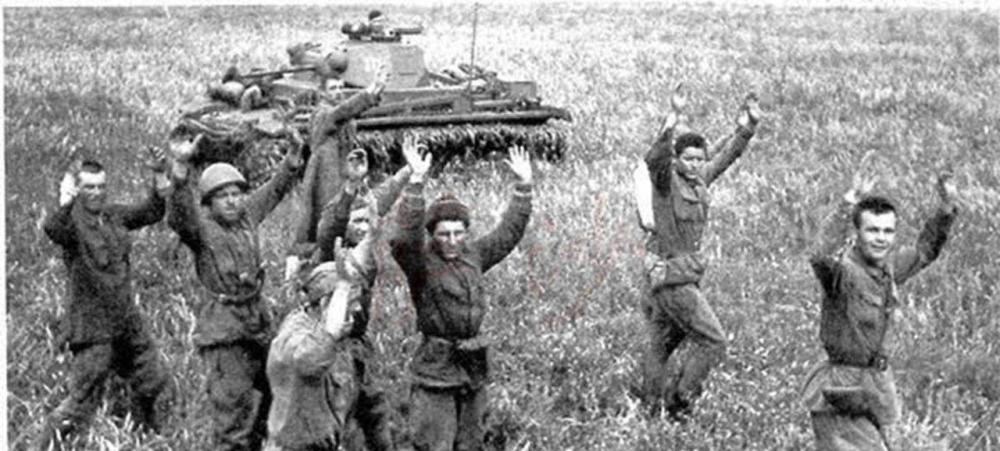
Pictured is the Battle of Kiev
The Soviet-German War was an important part of the Second World War, in the early stages of this war, because of various factors, the Soviet army suffered a tragic defeat, the most well-known of which is probably the Battle of Kiev, in which the Soviet Union was wiped out by the German army in one go more than 800,000 troops, of which almost the entire Southwest Front a total of 650,000 people were surrounded by the German army and surrendered, setting a record for the largest number of people surrounded in the history of human warfare.
The Battle of Kiev took place in early July 1941, less than half a month after the German offensive began in June, and the location was in Ukraine, ukraine was very important to the Soviet Union, the local fertile land provided the Soviet Union with the main food supply, but also produced a variety of minerals, if this place was taken by the German army, the Soviet Union would fall into a great passivity, and Kiev is not only the capital of Ukraine, but also an important strategic point for the Soviet army to hold in Ukraine, because most of the territory of Ukraine is plain terrain, almost no danger, The Soviets had to rely on large cities and artificially constructed fortresses to hold out, and if Kiev fell, the whole of Ukraine would fall.
In order to protect Kiev and Ukraine, the Soviets hastily transferred the entire Southwestern Front to deploy here, including Timoshenko and Khrushchev, a number of senior Soviet officials tried to lead the army to resist the German attack, but at this time the German offensive was in full swing, Guderian's German armored forces spearheaded the surprise Soviet positions to carry out blitzkrieg and interspersed attacks, and then a large number of German fighters bombarded the encircled Soviet troops indiscriminately, easily breaking through the Soviet perimeter defenses, and because of the lack of effective command and tactics against German blitzkrieg, After nearly three months of fighting, the Soviet army suffered a total of 190,000 casualties, 660,000 people were captured by the Germans in Kiev city, only a few high-level commanders such as Budyonny, Timoshenko, and Khrushchev successfully led a small number of troops to break through, and the German army only paid the price of 130,000 casualties.
The reason why the Soviet Union suffered such a tragic defeat is largely due to the extremely high military quality of the German army and the effectiveness of blitzkrieg tactics at the beginning of the war, the blitzkrieg with armored units as the spearhead can quickly carry out multi-point breakthroughs and in-depth penetration of the Soviet front, and the strong targets that are difficult to attack are bombarded with the air force, and the Soviet army is bombarded indiscriminately by the air force because of the Great Purge, and the various units cannot effectively cooperate with each other and cannot cope with the rapid attack of the German army, which will lead to the entire Southwest Front buried in the Kiev encirclement.
However, this battle was not a complete defeat for the Soviet Union, and the desperately recalcitrant Soviet troops in the encirclement also succeeded in slowing down the pace of the German offensive, so that a large number of German troops in Ukraine were delayed for nearly three months, until September to continue to operate, and according to the schedule of the Barbarossa plan, at this time the three German forces should have converged under the city of Moscow to launch a final attack, the Soviet action successfully disrupted the German timetable, allowing the German army to postpone the attack on Moscow until the arrival of winter. Because the winter in the Soviet Union was not expected to be so powerful, the German army did not prepare sufficient cold protection materials, resulting in the front line troops suffering from heavy losses due to the cold weather, and finally gave the Soviet army the opportunity to gather strength and thwart the German invasion of Moscow.